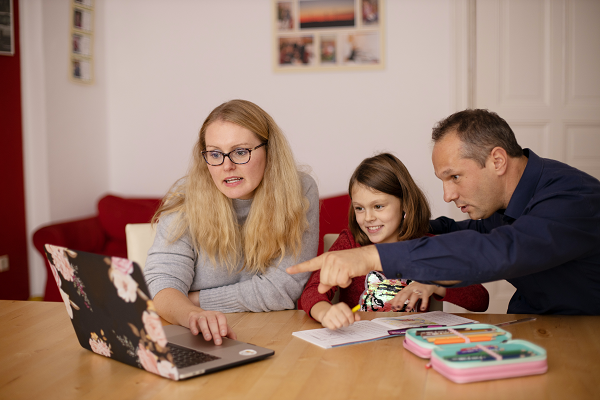Overcoming common barriers to parental involvement

Surprisingly, however, there are no clearly defined modalities for parental involvement across EU countries, or even across schools within the same country, as shown in the report ‘Parental involvement in formal education’ (2021). In other words, schools and teachers define what constitutes parental involvement on an individual basis, from attending teacher-parent meetings to participating in school events.
While this approach might seem to be a reasonable strategy at first glance, ambiguity in the definition of involvement can lead to negative outcomes. Parents and teachers may have a different understanding of what parents should or should not do to aid their children's progress. Without clear guidelines, parents might engage in ways and that seem acceptable to them or refrain from interactions with schools altogether. These parents may be unjustly labelled ‘hard-to-reach’ and uninterested in their children’s education, which is clearly far from the truth.
One of the main recommendations to boost parental involvement is to provide concrete and actionable toolkits for parents based on activities that are scientifically proven to be effective. Partnerships between parents and educators should be encouraged from the earliest educational stages.
Teachers may lack practical knowledge and skills for engaging with parents, particularly at an early stage in their careers, and especially with parents who do not actively seek engagement. Studies show that young teachers benefit from peer-to-peer learning, especially when paired with more experienced professionals working in disadvantaged schools or neighbourhoods. It is also important to add that parental involvement improves when schools and teachers approach parents as valued partners, and not within a power hierarchy. Parents' own negative childhood experiences at school could make them distrustful or uncomfortable around teachers and school authorities.
Another non-negligible barrier for some parents is the scarcity of certain resources. Sometimes it is a scarcity of time due to working conditions (inflexible hours or shift-based schedules can preclude teacher meetings during standard school hours). On other occasions, it is a scarcity of (affordable) childcare, as single parents and parents with multiple young children or children with disabilities may not always have the capacity to arrange childcare, especially on short notice. Unfortunately, scarcity of resources is often prevalent among socio-economically vulnerable families – exactly the families whose children could benefit most from the support of both parents and teachers.
The use of available technologies can potentially help overcome these obstacles. Online tools, messaging systems and audio and video input can help families stay involved, even from a distance. The COVID-19 pandemic accelerated the digitisation of education system and of society as a whole, and we can continue using these digital skills in a meaningful way.
Parental involvement has substantial implications for wider social inequalities: vulnerable students (e.g., pupils from disadvantaged socio-economic or immigrant backgrounds, from single-parent households, with special educational needs or other disabilities) would benefit most from effective parental engagement, not only with respect to their immediate school results, but through the long-term gains that education can offer, such as in income, health, and well-being.
Parents with advantaged socio-economic backgrounds provide extensive support both in and outside of school, to give their children a head start in navigating an increasingly challenging world. Parents from more modest backgrounds may not yet have shifted their mindsets to see themselves as active and capable partners in the educational process. During the COVID-19 pandemic, lower-socio-economic-status children suffered the largest education losses across many European societies. Teachers and schools can help parents shift their perspective by consistently providing encouragement and offering accessible tools that gradually build up parents’ capacity for successful involvement.
Aigul Alieva, Research Associate, Luxembourg Institute of Socio-Economic Research (LISER). Author of the NESET report ‘Parental involvement in formal education’ (2021)
Additional information
-
Target audience:Head Teacher / PrincipalParent / GuardianSchool PsychologistStudent TeacherTeacherTeacher Educator
-
Target audience ISCED:Primary education (ISCED 1)Lower secondary education (ISCED 2)Upper secondary education (ISCED 3)
